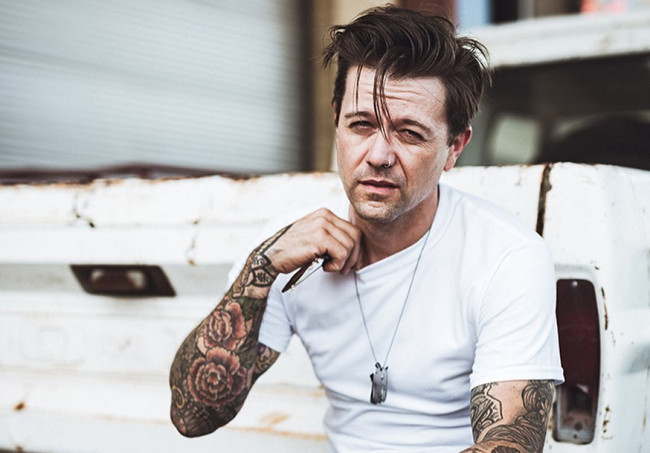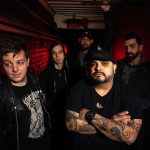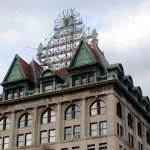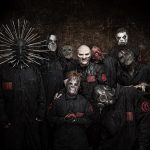Texas guitarist Eric Tessmer headlines night of blues rock at Stage West in Scranton on Jan. 29

From a press release:
It was announced this week that acclaimed Austin, Texas blues rock guitarist Eric Tessmer, named the best guitarist in the city by readers of the Austin Chronicle, will perform at Stage West in Scranton on Wednesday, Jan. 29.
Wilkes-Barre’s own blues rockers Dustin Douglas & The Electric Gentlemen and the Brendan Brisk Blues Band will open the 18+ show.
Doors at Stage West (301 N. Main Ave., Scranton) open at 6 p.m., and the concert starts at 7:30 p.m. Tickets, which are $10 in advance, are on sale now via Prekindle.
“Life is never going to go exactly the way you think it will,” Eric Tessmer said, “but I’ve come to appreciate that fact. Good things take time.”
Tessmer’s stellar new release, “EP II,” is proof of that. Three years in the making, the collection was recorded in Los Angeles with acclaimed producer Sean Beavan (Nine Inch Nails, Guns N’ Roses), and it finds the incendiary Austin guitarist matching his technical flash with new heights of lyrical craftsmanship and studio sophistication. The performances here represent Tessmer’s most raw, powerful work to date, tackling sobriety, commitment, and redemption with both deep insight and fearless vulnerability. It’s a remarkable step in an already remarkable career, one that showcases a virtuosic instrumentalist boldly stretching his limits and embracing his artful evolution as a singer and songwriter.
“I wanted to go deeper than I ever have before with this EP,” Tessmer explained. “I still love ripping things up on the guitar, but this time around, I wanted to save that more for the live show and really focus on concision in the studio.”
A Wisconsin native, Tessmer developed his love affair with music through a kind of familial osmosis. Both his grandmother and father played guitar, and Jimi Hendrix, Led Zeppelin, and Cream were all staples around the house growing up.
“My dad took my older brother and me to see Pink Floyd when I was 12,” Tessmer recalled. “I remember watching David Gilmour play the solo to ‘Comfortably Numb’ while this giant disco ball opened up like an iris. I said to myself, ‘I want to make people feel like this. I’m going to play guitar for the rest of my life.’”
Inspired in part by watching reruns of “Austin City Limits” on his local PBS station, Tessmer moved to Texas straight out of high school, and he quickly garnered a formidable reputation there for his fierce fretwork and explosive live performances. He cut his teeth playing residencies in clubs and bars, shared stages with everyone from Gary Clark, Jr. to Tab Benoit, and released a series of live and studio albums that earned widespread critical acclaim, with the Austin Chronicle dubbing him an “SRV-fast firebrand” and the Austin American Statesman hailing him as a “working class guitar hero.” While some artists work so hard they practically live in their rehearsal spaces, Tessmer took things a step further, literally building a bunk into the “glorified closet” where he practiced in order to make it his full-time home.
“At first I didn’t even have a futon or a sleeping bag, and the only bathroom was a shared one down the hall,” he remembered. “It was a tough transition, but it really did help so much because I could play as loud as I wanted whenever I wanted. Spending all that time by myself in seclusion really helped me pick up material, too. When you live in your rehearsal space, you’ve got nothing to do but either practice or think about your life.”
Tessmer found himself with a lot to contemplate during the years he called his rehearsal space home. Despite the sheer magnetism he projected onstage, he often felt intensely uncomfortable in the spotlight and self-medicated with alcohol.
“I was a hot mess a lot of the time,” he explained. “I’d get half-drunk and put up a wall between myself and the crowd just so I could feel OK up there. But then I got sober, and that changed my whole life.”
He quit drinking around the time he embarked on his current series of EPs, releasing “EP I” in 2016 as the first chapter in a planned trilogy. When it was time to record the follow-up, he reached out to longtime friend Sean Beavan, whose staggering production and mixing resume caught Tessmer completely by surprise.
“Sean and I were buddies for years, and I knew he was in the music industry, but I don’t really Wikipedia my friends,” Tessmer laughed. “I had no idea all the incredible work he’d done until my tour manager mentioned being a fan and I looked up his discography.”
At Beavan’s invitation, Tessmer relocated to Los Angeles for nearly a month of intensive writing and recording. The sessions marked Tessmer’s first studio work outside of Austin, and the change of scenery proved to be a creative boon, breaking him of old habits and offering fresh perspective. Joined by his touring band, he cut much of the basic tracking live in the studio before isolating himself to pen lyrics.
“I was at an interesting spot in my life at that time,” Tessmer said. “I was finally starting to get comfortable being sober, and I was also about to get married, so I was coming to terms with a lot all at once. You want to be honest and real with people, but you never want to get preachy or cheesy, so I decided to lighten up and just write the kind of songs I’d want to listen to.”
The EP reflects that loose, energetic freedom from the start, with searing rocker “The Treatment” kicking things off with an infectious guitar riff that at once calls to mind AC/DC and ZZ Top. It’s a love song, no doubt, but in typical Tessmer fashion, it comes with a dark edge, a hint of danger that flows just beneath the surface. The slow-burning “Good So Bad” grapples with the rollercoaster of addiction and recovery, while the eerie “Early Early Morning” mixes romance and film noir, and the swampy “Po’ Boy” is a funky instrumental fireworks show. Though the collection prizes economy, Tessmer’s sprawling cover of friend and collaborator Anders Osborne’s “Love Is Taking Its Toll” is a notable exception, clocking in at 10 minutes of blistering guitar work and smoldering vocals. Of all the standout moments on the EP, though, it’s perhaps the soulful “Simple Solution,” an anthemic ode to music itself, that captures Tessmer’s spirit best.
“I must have had 10 different sets of lyrics for that song,” he recalled. “I felt this pressure to be ‘profound,’ but then I realized that the most profound thing I could do was to stop taking myself too seriously, crank the music up, and do what I love to do.”
It may have taken a while to get there, but the finished product is everything Tessmer hoped it would be and more. Good things take time, after all, and a collection as strong as “EP II” is undoubtedly worth the wait.



